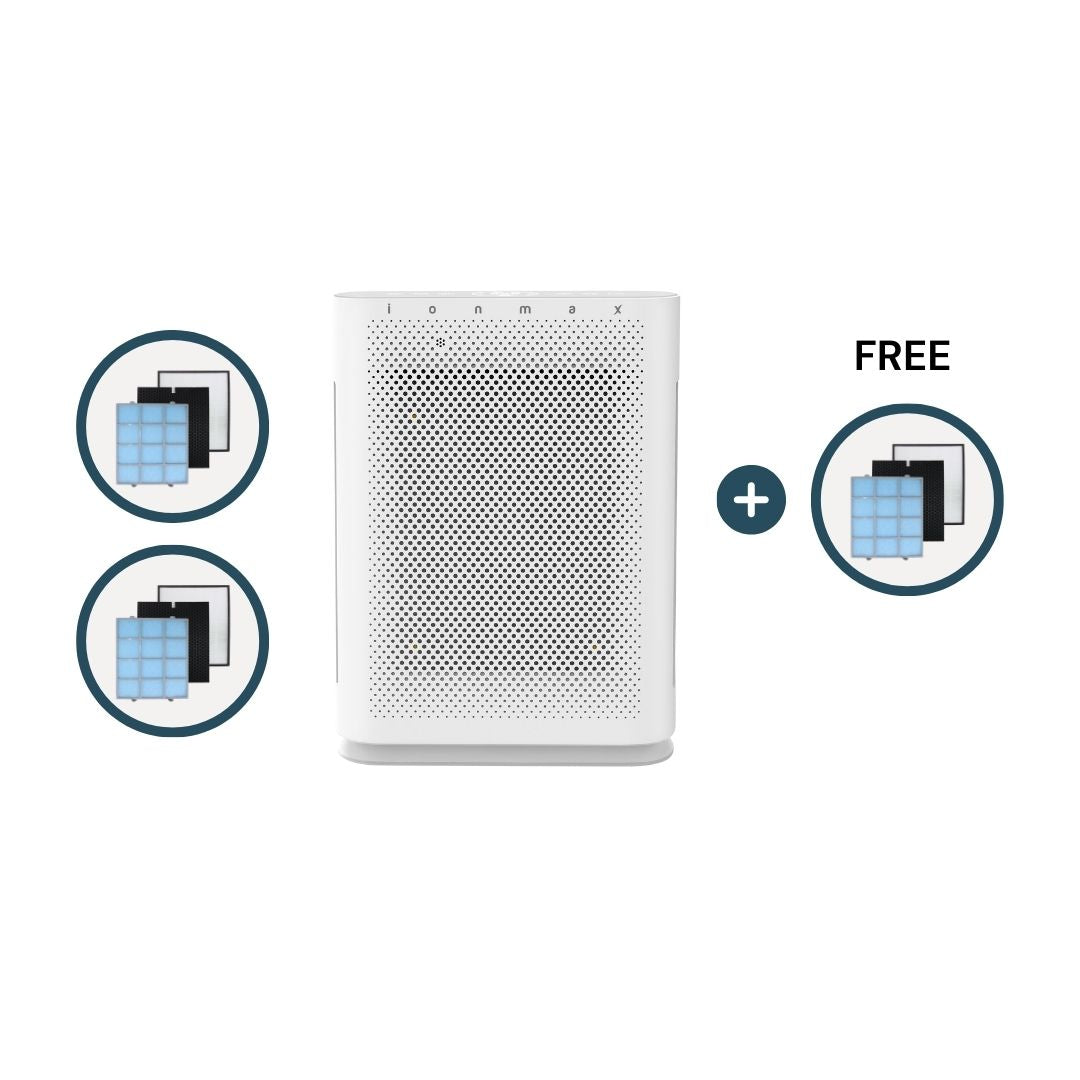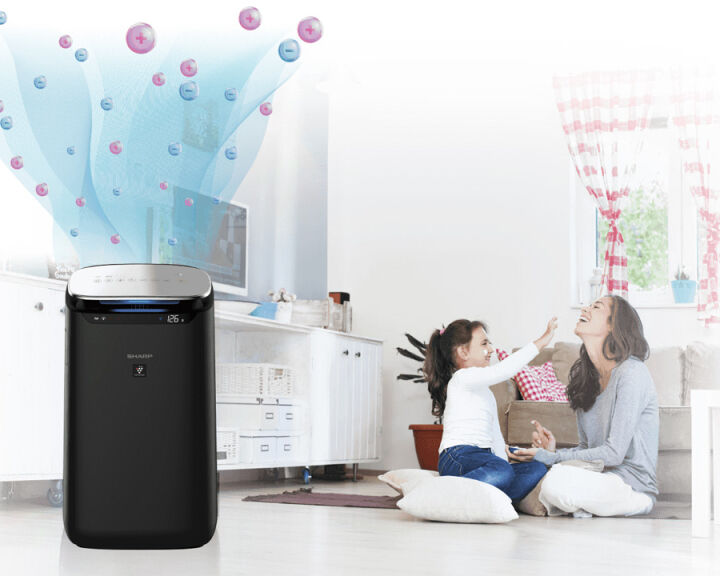Featured
Table of Contents
- – Comprehending Allergic Reactions and Triggers
- – Can Air Purifiers Assist With Allergies?
- – The Scientific Research Behind Air Purifiers ...
- – Are Air Purifiers Right for You? Aspects to C...
- – Making the Most of Air Purifiers for Allergies
- – Beyond Air Purifiers: A Multi-Pronged Method t...
- – Living a Breath Easier Life with Allergies

Air cleansers are commonly touted as a remedy, promising cleaner air and relief from allergic reaction signs and symptoms. Are air purifiers really worth the investment for allergic reaction patients?
Comprehending Allergic Reactions and Triggers
To understand the duty of air purifiers, allow's first explore allergic reactions and their triggers:
- The Sensitive Reaction: Allergies occur when your immune system panics to a safe material, like plant pollen or allergen. This response triggers the launch of histamines, creating allergy symptoms like sneezing, coughing, itchy eyes, and a dripping nose.
- Typical Irritants: Indoor irritants include allergen, family pet dander, mold spores, plant pollen that drifts inside your home, and also cockroach allergens. These airborne particles can aggravate your respiratory tracts and cause allergy signs.
Can Air Purifiers Assist With Allergies?
Air purifiers function by attracting air, removing contaminants, and releasing cleaner air back right into the area. Here's just how they can possibly profit allergy patients:
- Capturing Allergens: HEPA (High-Efficiency Particulate Air) filters, an usual kind made use of in air purifiers, are extremely effective at catching airborne allergens like dust termites, pet dander, and plant pollen. By removing these triggers from the air you take a breath, air cleansers can aid reduce allergy signs.
- Improved Air Quality: Air purifiers can likewise eliminate various other toxic irritants from the air, such as smoke, dust, and unstable organic compounds (VOCs) This total enhancement in air quality can be useful for allergic reaction sufferers that are sensitive to these extra triggers.
The Scientific Research Behind Air Purifiers and Allergies
Studies have shown that air cleansers can be helpful in minimizing allergy signs. Here's a take a look at some key research findings:
- A 2019 review published in the journal "Existing Allergic reaction and Asthma Records" concluded that air cleansers with HEPA filters can be effective in decreasing allergic reaction symptoms and enhancing lifestyle for individuals with allergic rhinitis (hay fever)
- A 2018 study released in the journal "Annals of Allergic Reaction, Asthma & Immunology" found that making use of an air purifier with a HEPA filter in the room substantially minimized dirt mite irritant levels and improved rest high quality in individuals with bronchial asthma.
Nevertheless, it is necessary to keep in mind that study also recommends some limitations:
- Air Purifier Coverage: Air purifiers are most effective in the area where they are positioned. Their influence on irritants in various other components of your house could be minimal.
- Intensity of Allergies: While air cleansers can assist, they might not be a complete service for serious allergies. Medicines and other allergic reaction monitoring methods could still be required.
Are Air Purifiers Right for You? Aspects to Consider
Here are some key factors to think about when determining if an air purifier is worth it for your allergic reactions:
- Severity of Allergies: If your allergies are moderate and well-controlled with medicine, an air purifier may not be required. Nonetheless, for those with moderate to serious allergic reactions, an air purifier can be an important device in handling signs.
- Kinds of Irritants: Take into consideration the major triggers for your allergies. Air purifiers are most efficient for airborne allergens like dust mites, pet dander, and plant pollen. They could not be as valuable for irritants like mold that expand on surface areas.
- Way of living and Environment: If you have pets, stay in an area with high pollen matters, or have issues about indoor air top quality, an air purifier can be advantageous.
:max_bytes(150000):strip_icc()/spr-primary-hwortock-001-e165b9a055e14512abf7a52884cd6b86.jpeg)
Making the Most of Air Purifiers for Allergies
If you decide to buy an air purifier for allergic reactions, here are some ideas for maximizing its efficiency:
- Pick a HEPA Filter: Look for an air purifier with a HEPA filter certified to capture fragments as small as 0.3 microns.
- Right Size for the Room: Guarantee the air purifier has a Clean Air Distribution Rate (CADR) that appropriates for the dimension of the area you plan to utilize it in.
- Positioning Issues: Place the air purifier in the room where you spend one of the most time, such as your room.
- Regular Filter Maintenance: Replace HEPA filters according to the manufacturer's guidelines to keep optimum performance.
- Combine with Various Other Techniques: Air cleansers are not a one-size-fits-all service. Incorporate them with other allergy administration methods like medicine, normal cleansing, and allergen-proof bed linens.
Beyond Air Purifiers: A Multi-Pronged Method to Allergic Reaction Administration

While air purifiers can be an important tool in your allergy toolbox, they are not a magic bullet (If you're looking to buy an Air Purifier then Air Cleaners Australia is the best destination.). A detailed technique that incorporates air purification with various other techniques is key to accomplishing long-term allergic reaction relief. Below are some extra techniques to think about:
- Drug: Antihistamines, decongestants, and nasal corticosteroids, suggested by your doctor, can efficiently manage allergic reaction symptoms.
- Allergic Reaction Testing and Immunotherapy: Recognizing your specific irritants through allergic reaction testing can lead the way for immunotherapy, a therapy that assists desensitize your immune system to allergens gradually.
- Air Top Quality Administration: Normal cleaning with a HEPA-filtered vacuum and allergen-specific cleansing items can substantially reduce allergen, animal dander, and other irritants in your house.
- Controlling Humidity: Mold flourishes in moist atmospheres. Making use of a dehumidifier can help control moisture degrees and protect against mold development, a common indoor irritant.
- Way of living Adjustments: If you have allergies to pollen, staying inside throughout top plant pollen seasons and bathing after hanging around outdoors can assist reduce exposure.
- Bed linens and Surface Areas: Encasing cushions and bed mattress in allergen-proof covers can considerably decrease allergen exposure. On a regular basis cleaning bed linens in hot water helps eliminate allergens.
Living a Breath Easier Life with Allergies
Remember, handling allergic reactions is a continual process. By recognizing your triggers, carrying out a multi-pronged technique, and possibly integrating an air purifier right into your method, you can substantially minimize allergy signs and breathe easier.
Added Considerations:
- Consulting a Physician: If your allergies are serious or otherwise well-controlled with medication and way of living adjustments, seek advice from an allergist for customized recommendations.
- Air High Quality Monitoring: Think about making use of an air high quality screen to track allergen degrees in your home and readjust your administration techniques appropriately.
- Long-Term Financial investment: An excellent quality air purifier can be a long-lasting investment in your health and health.
By taking a positive method and embracing a combination of these strategies, you can develop a much healthier and allergy-friendly setting, allowing you to delight in a breath simpler life.
Table of Contents
- – Comprehending Allergic Reactions and Triggers
- – Can Air Purifiers Assist With Allergies?
- – The Scientific Research Behind Air Purifiers ...
- – Are Air Purifiers Right for You? Aspects to C...
- – Making the Most of Air Purifiers for Allergies
- – Beyond Air Purifiers: A Multi-Pronged Method t...
- – Living a Breath Easier Life with Allergies
Latest Posts
Can You Dishwash Your Yeti Rambler With Confidence? for Beginners
Some Known Details About Can Your Yeti Rambler Handle The Dishwasher's Heat?
What Does Are Yeti Ramblers Compatible With Dishwashers? Do?
More
Latest Posts
Can You Dishwash Your Yeti Rambler With Confidence? for Beginners
Some Known Details About Can Your Yeti Rambler Handle The Dishwasher's Heat?
What Does Are Yeti Ramblers Compatible With Dishwashers? Do?